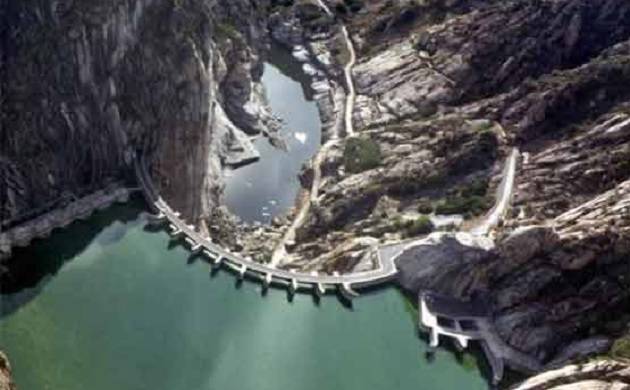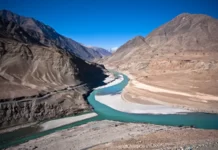
WASHINGTON: A four-member Pakistan delegation, headed by Attorney General Ashtar Ausaf, has requested the World Bank to act as a guarantor in the Kishanganga Dam issue.
The delegation, which arrived in Washington, DC earlier this week, apprised World Bank president Jim Yong Kim and other representatives of India’s repeated violations of Indus Waters Treaty (alternatively known as the Sindh Taas Agreement).
According to a World Bank spokesperson, “The Indus Waters Treaty is a profoundly important international agreement that provides an essential cooperative framework for India and Pakistan to address current and future challenges of effective water management to meet human needs and achieve development goals,” The Hindu reported.
“The meetings are discussing concerns raised by the Pakistan delegation and opportunities within the treaty to seek an amicable resolution,” the spokesperson added.
The meeting took place after Indian Prime Minister Narendra Modi inaugurated Kishanganga Dam project on Saturday amid protests from Pakistan, which says the project on a river flowing into Pakistan will disrupt water supplies.
The 330MW Kishanganga hydropower station, work on which started in 2009, is one of the projects that India has fast-tracked in the volatile state amid frosty ties between the nuclear-armed countries.
Pakistan has opposed some of these projects, saying they violate a World Bank-mediated treaty on the sharing of the Indus River and its tributaries upon which 80 percent of its irrigated agriculture depends.
“Pakistan is seriously concerned about the inauguration (of the Kishanganga plant),” its Foreign Ministry said in a statement on Friday. “Pakistan believes that the inauguration of the project without the resolution of the dispute is tantamount to violation of the Indus Waters Treaty.”
The Kishanganga project was delayed for several years as Pakistan dragged India to the International Court of Arbitration, which ruled in India’s favour in 2013. India has said the hydropower projects underway in Jammu and Kashmir are “run-of-the-river” schemes that use the river’s flow and elevation to generate electricity rather than large reservoirs, and do not contravene the treaty.
On Sunday, Pakistan Ambassador to the United States Aizaz Chaudhry had remarked that Pakistan intended to consult with the World Bank on the Kishanganga Dam issue.
Speaking in the context of issues pertaining to Islamabad’s eastside neighbour, Chaudhry had said the country intended to take up plans of Indus Waters Treaty, Kishanganga Dam, and Ratle Hydroelectric Plant with World Bank president Jim Yong Kim.






